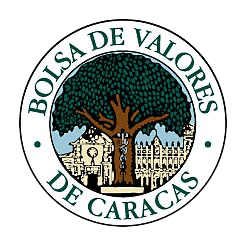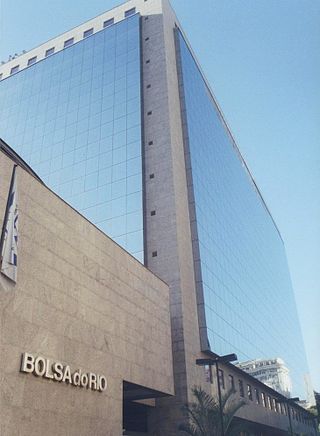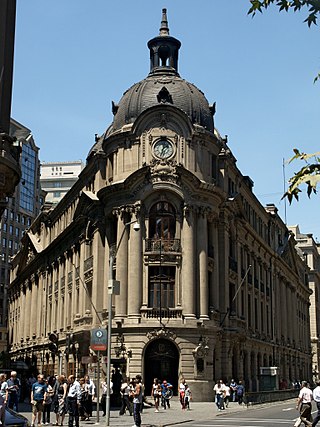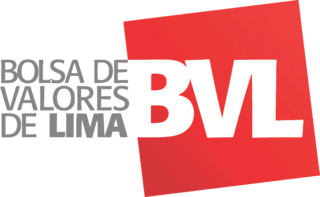
The economy of El Salvador has experienced relatively low rates of GDP growth, in comparison to other developing countries. Rates have not risen above the low single digits in nearly two decades – part of a broader environment of macroeconomic instability which the integration of the United States dollar has done little to improve. One problem that the Salvadoran economy faces is the inequality in the distribution of income. In 2011, El Salvador had a Gini Coefficient of .485, which although similar to that of the United States, leaves 37.8% of the population below the poverty line, due to lower aggregate income. The richest 10% of the population receives approximately 15 times the income of the poorest 40%.

The Mexican Stock Exchange, commonly known as Mexican Bolsa, Mexbol, or BMV, is one of two stock exchanges in Mexico, the other being BIVA - Bolsa Institucional de Valores. It is the second largest stock exchange in Latin America, only after São Paulo based B3 in Brasil. It is also the fifth largest stock exchange in the Americas. The exchange platform is owned by BMV Group, which also owns the derivative exchange MexDer and the custody agency Indeval.
The IBEX 35 is the benchmark stock market index of the Bolsa de Madrid, Spain's principal stock exchange. Initiated in 1992, the index is administered and calculated by Sociedad de Bolsas, a subsidiary of Bolsas y Mercados Españoles (BME), the company which runs Spain's securities markets. It is a market capitalization weighted index comprising the 35 most liquid Spanish stocks traded in the Madrid Stock Exchange General Index and is reviewed twice annually. Trading on options and futures contracts on the IBEX 35 is provided by MEFF, another subsidiary of BME.

B3 S.A.– Brasil, Bolsa, Balcão, formerly BM&FBOVESPA, is a stock exchange located in São Paulo, Brazil, and the second oldest of the country.

MercadoLibre, Inc. is an Argentine company headquartered in Montevideo, Uruguay and incorporated in Delaware in the United States that operates online marketplaces dedicated to e-commerce and online auctions. As of 2016, Mercado Libre had 174.2 million users in Latin America, making it the region's most popular e-commerce site by number of visitors. The company has operations in Argentina, Bolivia, Brazil, Chile, Colombia, Costa Rica, Dominican Republic, Ecuador, El Salvador, Guatemala, Honduras, Mexico, Nicaragua, Panama, Paraguay, Peru, Uruguay and Venezuela. In 2023 Time included Mercado Libre in the list of the 100 most influential companies in the world.

Bolsa de Madrid is the largest and most international of Spain's four regional stock exchanges that trade shares and convertible bonds and fixed income securities, and both government and private-sector debt. Bolsa de Madrid is owned by Bolsas y Mercados Españoles.

The Caracas Stock Exchange or Bolsa de Valores de Caracas (BVC) is a stock exchange located in Caracas, Venezuela. Established in 1947, BVC merged with a competitor in 1974.

The Rio de Janeiro Stock Exchange was Brazil's second largest exchange, and was amongst the oldest of Brazilian stock exchanges. Its inauguration occurred on July 14, 1820, 3 years after the 1st Brazilian stock exchange inaugurated, the today inactive Salvador Exchange; and before the Brazilian Independence process began.

The Santiago Stock Exchange (SSE), founded on November 27, 1893, is Chile's dominant stock exchange, and the third largest stock exchange in Latin America, behind Brazil's BM&F Bovespa, and the Bolsa Mexicana de Valores in Mexico. On December 5, 2014, the Santiago Stock Exchange announced it was joining the United Nations Sustainable Stock Exchanges (SSE) initiative, becoming the 17th Partner Exchange of the initiative.

Euronext Lisbon is a stock exchange in Lisbon, Portugal. It is part of Euronext pan-European exchange. The most famous index is PSI-20.

The Lima Stock Exchange is the stock exchange of Peru, located in the capital Lima. It has several indices. The S&P/BVL Peru General Index is a value-weighted index that tracks the performance of the largest and most frequently traded stocks on the Lima Exchange.

The Colombia Securities Exchange is a stock exchange which was created as a result of merging three independent stock exchanges: Bogotá, Medellín and Occidente. It has offices in Bogotá, Medellín and Cali. Furthermore, with the bvc Training Centers the company is located in 19 Colombian cities through agreements with universities and chambers of commerce.

Bolsas y Mercados Españoles is the Spanish company that deals with the organizational aspects of the Spanish stock exchanges and financial markets, which includes the stock exchanges in Madrid, Barcelona, Bilbao and Valencia. In addition to the trading of shares and bonds, BME offers access to a number of other products and the clearing and settlement of operations. BME is also developing a technological consultancy, operating in 23 countries and mainly providing trading systems.

The BME Growth is a sub-market of Bolsas y Mercados Españoles (BME), the Spanish company that deals with the organizational aspects of the Spanish stock exchanges and financial markets, which includes the stock exchanges in Madrid, Barcelona, Bilbao and Valencia.

The Mercado Integrado Latinoamericano, more commonly known as MILA, is a program that integrates the stock exchange markets of Chile, Colombia, Mexico, and Peru. The three founding members are the Lima Stock Exchange, the Santiago Stock Exchange, and the Colombia Stock Exchange. The integration aims to develop the capital market through the integration of the four countries, to give investors a greater supply of securities, issuers and also larger sources of funding.

The Pacific Alliance is a Latin American trade bloc, formed by Chile, Colombia, Mexico and Peru, which all border the Pacific Ocean. The alliance was formed with the express purpose of improving regional integration and moving toward complete freedom in the movement of goods, services, capital and people between the four member states. Together, these four countries have a combined population of more than 230 million people and make up roughly 35 percent of Latin American GDP.

The Sustainable Stock Exchanges (SSE) initiative promoting corporate investment in sustainable development. It is a project of the United Nations (UN) co-organized by the United Nations Conference on Trade and Development (UNCTAD), the United Nations Global Compact, the United Nations Environment Programme Finance Initiative (UNEP-FI) and the UN-supported Principles for Responsible Investment (PRI).

Bolsa Mexicana de Valores, S.A.B. de C.V., trading as Grupo BMV, is a Mexican financial services company headquartered in Mexico City, Mexico. It is the owner and operator of the Mexican Stock Exchange and other financial services companies, such as the custody institution Indeval, the derivatives exchange MexDer, and the market data provider ValMer.

The Institutional Stock Exchange, commonly known as BIVA, is Mexico's second stock exchange, based in Mexico City. BIVA began operations on 25 July 2018 and trades the same instruments as the other exchange in Mexico, the Bolsa Mexicana de Valores: equities, debts, warrants and some Mexican-specific instruments such as CKDs and FIBRAs.

Grenergy is a Spanish company founded in 2007. It is an independent renewable energy producer and a specialist in the development, construction and operation of photovoltaic and storage projects. It is present in 10 countries in Europe, Latin America and the United States. In 2023, with more than 600 employees, it posted a net profit of €51 million, a fivefold increase compared to 2022. In terms of total revenue, it rose to €400 million, 37% higher than in 2022.


















